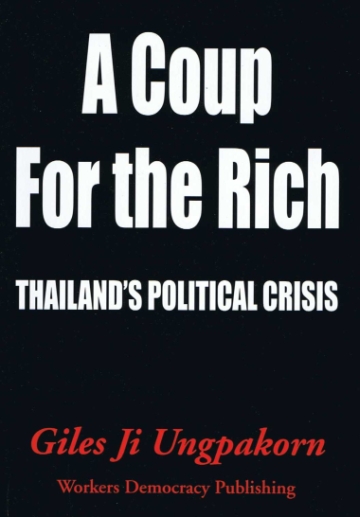A Coup for the Rich: Thailand’s Political Crisis by Giles Ji Ungpakorn is a blistering 144 page analysis of contemporary Thai politics that is both readable and refreshingly frank. Offering a non-doctrinaire Marxist approach, Ungpakorn blames a profound weakness in Thai civil society for its political immaturity and vulnerability to being manipulated by the rich and powerful. The analysis demonstrates that this weakness is positively cultivated by the political elite for its own advantage. In this account the most cherished myths of contemporary Thai society are directly challenged in a style likely to offend some readers, so the author warns in his introduction: “Dear Reader, if you are expecting a mainstream analysis of Thai politics and society, you need read no further. Close the book and toss it away.” (ISBN: 9748822559)
[This post is provided by the National Library of Australia as part of our Book Zone feature. For further information on the featured publications contact Saowapha Viravong at [email protected]]
 Facebook
Facebook  Twitter
Twitter  Soundcloud
Soundcloud  Youtube
Youtube  Rss
Rss 